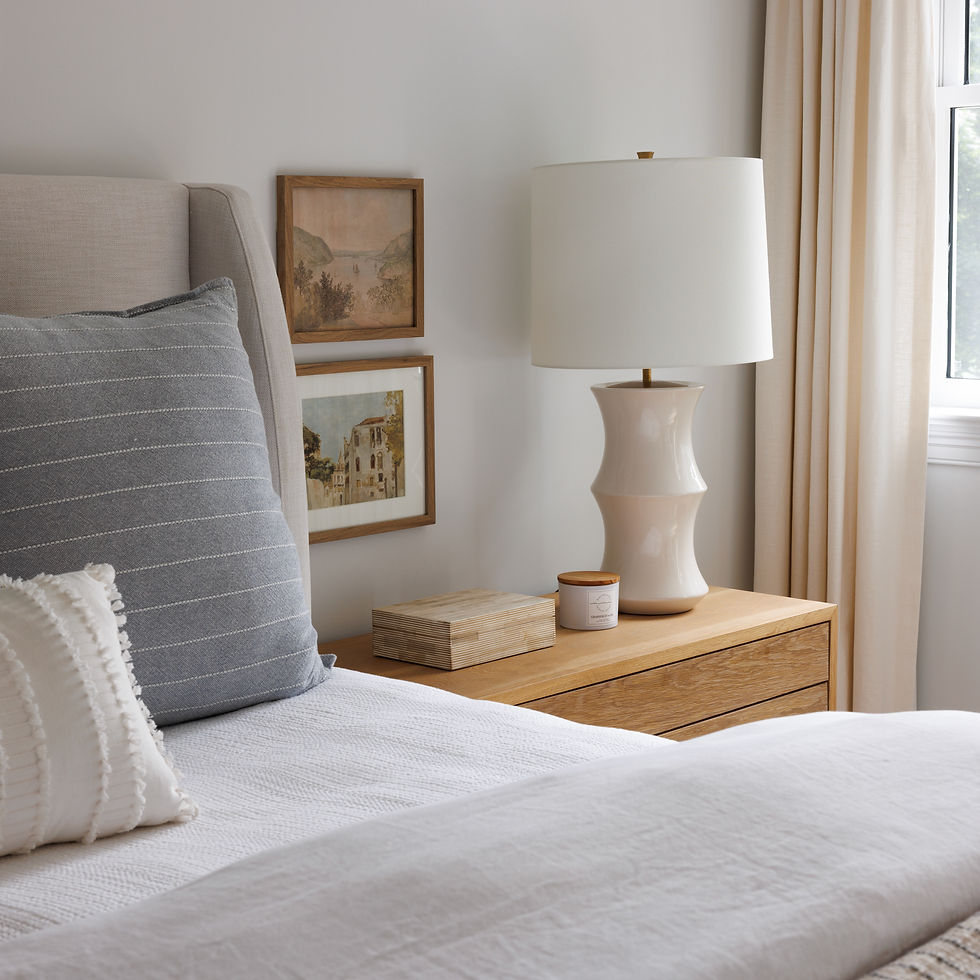What Wood Flooring is Right For You?
- Madison Lussier
- Feb 23, 2021
- 3 min read

Engineered Hardwood Flooring
Wood flooring is SUCH a big decision, investment, and design choice in any home build or remodel, and today we're explaining the differences between the most common options! We're also including photos of a few recent projects to give you a sense of what you could achieve for your home as well! Scroll through for our thoughts on solid hardwood, engineered wood, luxury vinyl planks, and laminate flooring.

Engineered Hardwood Flooring
SOLID HARDWOOD
Solid wood planks are milled from one piece of hardwood, normally around 3/4" thickness, and finished with a clear protective layer. Solid hardwood is meant to be able to take sanding and refinishing many times over the life of the flooring. However, because each plank is a solid piece of wood, they will expand and contract based on your home's humidity throughout the year. If you want to prevent warping, your home's humidity should hover between 45% and 65% throughout the seasons.
Solid wood planks are typically permanently nailed to the subfloor, and because of the expansion and contraction issues inherent to this type of flooring, your flooring installer will leave a gap between the wall and the floor to make up for that.
This type of flooring is the most expensive mainly because these planks can be sanded down to 1/2" thick, and are very durable. Consider this option if you have a healthy budget to dedicate to flooring, and you want to be able to let the floor age and refinish as necessary. Pricing hovers around $40/sf, but can vary based on wood type and vendor.
Engineered Hardwood
These planks are typically made with multiple layers to create each plank, with 1/8" veneer of hardwood on top that can be sanded. Plywood substrates form the underlayers, and stone dust can be mixed in with the recycled wood fibers to create more durable and stable layers.
Engineered hardwood expands and contracts less than solid wood planks. This system can be glued down, but a floating floor over layers of moisture protection is the quietest option when walking over the planks. It can have a more hollow sound than solid hardwood, just so you're not surprised if you end up going down this path.
Engineered hardwood pricing can be anywhere from $6-$15/sf, and this has proven to be a favorite for our clients because of the difference in price point with a lot of the same benefits as solid hardwood.

Luxury Vinyl Plank Flooring
Luxury Vinyl Planks
Luxury vinyl plank flooring is another great alternative to hardwood flooring to consider. LVP flooring is created with four layers, including a waterproof PVC vinyl core and a scratch and stain resistant top layer that is great for kids and families. The top layer is a printed finish that looks like wood, and has texture added so it feels more like the real thing. Because of the waterproof core, LVP flooring is a great option for a bathroom or other areas with high humidity, and allows you to have continuous flooring throughout multiple spaces. We love using this option for properties close to the beach with active families, because sand won't do a number on these floors like it would on the other two options above.
This floor is also very easy to install, with click-and-lock edges that can be installed over any existing subfloors including granite, tile, laminate, or cement. Pricing for LVP flooring is typically in the range of $3-$5/sf.
Laminate Flooring
Laminate flooring is something you probably remember from your parents' or grandparents' homes. It is the least expensive option out of what we have listed here, but you do get what you pay for. We try to avoid this option for clients, as the "wood" looks much more plastic and obviously not real. It is not as durable as a flooring choice as well. Think of this option as the cheap heels you buy for one night out vs. the well made Italian boots you wear for decades because they just get better with age.
Do you have any questions about any of these options? Shoot us a message at @madisonicoledesign!



.png)
Comments